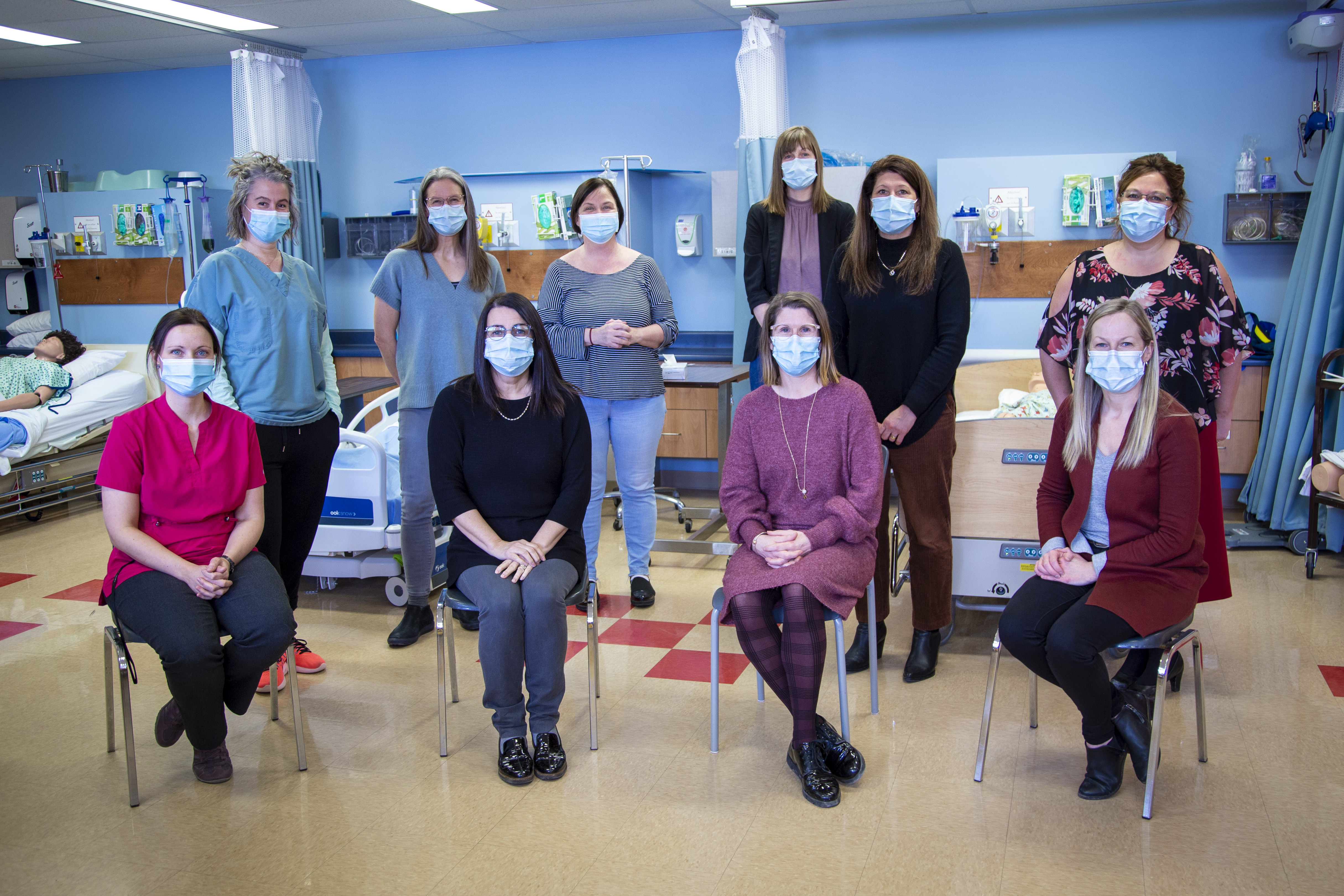
The achievement of “intervention” competencies have been compromised by the continual risk of internships being cancelled (by the CISSS du Bas-St-Laurent) due to the pandemic. Because of these cancellations beyond our control, teachers were forced, with hardly an hour’s notice, to create alternative measures that would match the internship experience for the program’s eight courses per session.
As a result, the Cégep de Rivière-du-Loup teaching team created a bank of compensatory internship measures presenting relevant situations for these eight courses. These measures allowed the “intervention” competency to be achieved without delay when an internship was cancelled, while respecting the number of exposure hours to situations in which students must intervene, as prescribed by the Ministry of Education. Our graduates were therefore able to complete their courses without having to complete their internship at the end of their term. This way, they were able to enter the workforce as planned and help offset the workforce shortage in the health network, especially during the pandemic.
This project made it possible to provide consistent instruction in the various contexts suggested through compensatory activities that compare with an internship that offers a variety of real situations, but with some difficulty in standardization.
The strategy developed is currently being used in our program and could be applied in other health programs to continue to achieve the competencies needed to work with different populations. These educational activities may be applied in whole or in part, according to internship requirements, even after the pandemic is over.
Project submitted by Julienne Auclair and Annik Lavoie, Instructors
Other contributors to the project: Nadine Santerre, Annie Roy, Geneviève Labrecque, Marie-Josée Lachance, Manon Deschênes, Sylvie Mailloux, Jovette Charest, Véronique Boucher, Christine Dionne and Sophie Caron, Instructors